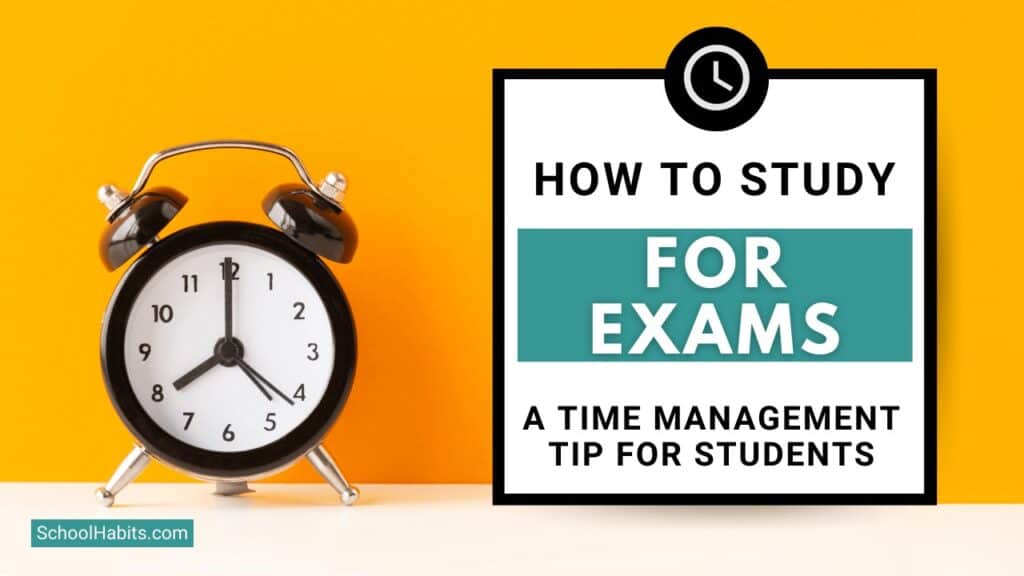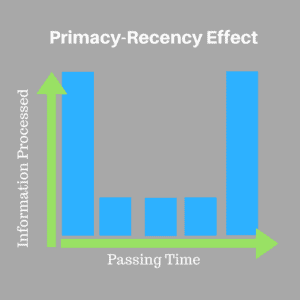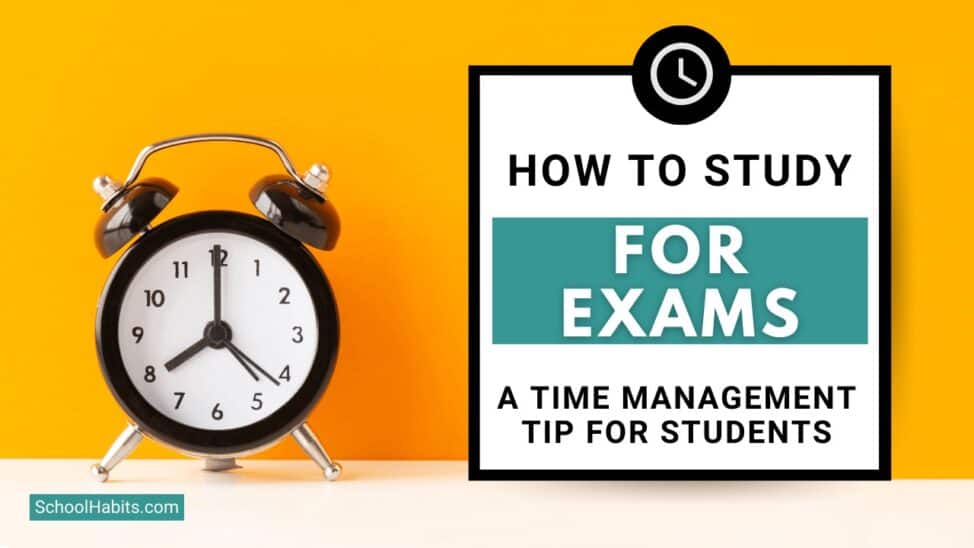
By Katie Azevedo, M.Ed.
Wondering how to study for exams? Plain and simple: You need to study in short, frequent increments, a little bit each day over a period of time. At all costs, avoid studying in one large chunk.
Actual science tells us that we better remember what comes first and last, while we tend to forget the stuff in the middle. This is called the Primacy-Recency Effect, and it’s a legit thing. (FYI: primacy=first, recency=last)
Here’s an example: You have a party and invite 100 people. (Nice party.) According to the Primacy-Recency Effect, you would remember the names of the first few people to arrive, and you would remember the last few people to leave. But, you would forget the order of the people who arrived in the middle.
So what does knowing about this theory have anything to do with how to study for exams? A lot.
Think about it: If we more easily remember what we learn at the beginning and at the end, one large epic study session makes no sense… because that would give us a lot of “middle” stuff that we are likely to forget.

The best way to study for exams is to study in short, frequent intervals. Breaking study sessions into small chunks will give us more “beginnings” and “ends” … which gives us more opportunities to remember the information we are learning. Get it?! Studying in short, frequent chunks is also called Spaced Repetition. I go into detail about Spaced Repetition here, and it’s important.
How to study for exams using short intervals
When you’re studying for an exam or a big test that is at least a few days away, here are the general guidelines I recommend you follow:
1. If you have a lot of material to study over a period of days or weeks, plan your time so that you are studying a little bit each day. Seriously, every day you need to be looking at and thinking about the material. Study for about 30 minutes each day, or 30 minutes twice a day. If you’re stuck, here is how to create a study schedule. Remember: Short. Frequent. Increments.
2. If you have a lot of material to study in one single day, break up your study session into smaller chunks. Use the Pomodoro Technique (here’s how to do that) or some other way to divide your study session into chunks of no more than an hour without a short break.
3. Whether you’re studying for one day or for three weeks, arrange your time so that you’re studying in short, frequent chunks in order to create as many “beginnings” and “ends” as possible. While I recommend studying for each exam over the course of 2 weeks, here’s my Ultimate 5-Day Study Plan for the times you’re in a pinch.
4. At the end of each short study session, write down where you left off, so that you know exactly where to pick up again when you come back to the material (whether it’s 10 minutes later or the next day). Get yourself some sticky-notes for this step: it’s important. This is kind of like the Status Note strategy I teach here.
5. Even if you think you’re on a roll and don’t feel like stopping for a break, stop anyways. Sure, some of us can go longer than others without losing focus, but studying for hours without a break is really a waste of time. When we force ourselves to keeeep going without stopping, we are just making our “middle” bigger and fuzzier. Recognize when it’s time to take a study break.
How to study for exams: Recap
To be honest, even though I now know how to study for exams like a boss (lol), when getting my Master’s Degree I used to cram for tests using the old “epic-study-session-that-lasts-for-dayssssssssssss” method because it’s what I grew up using and knowing. But no more. No way.
Yes, I know studying for exams this way requires some planning, time management and scheduling, but the payoff is incredible. Short, frequent bursts of intense studying is always more effective than camping overnight in the library with a keg of coffee and a bushel of hope.
Are you a parent? Get my FREE downloadable 10-page Guide To Teaching Your Child Time Management Skills. It’s really free. Nothing spammy or weird.

